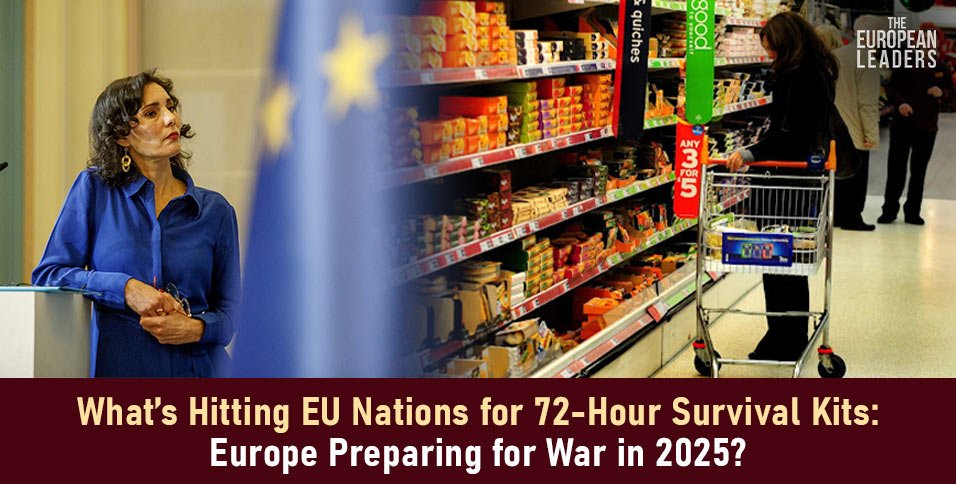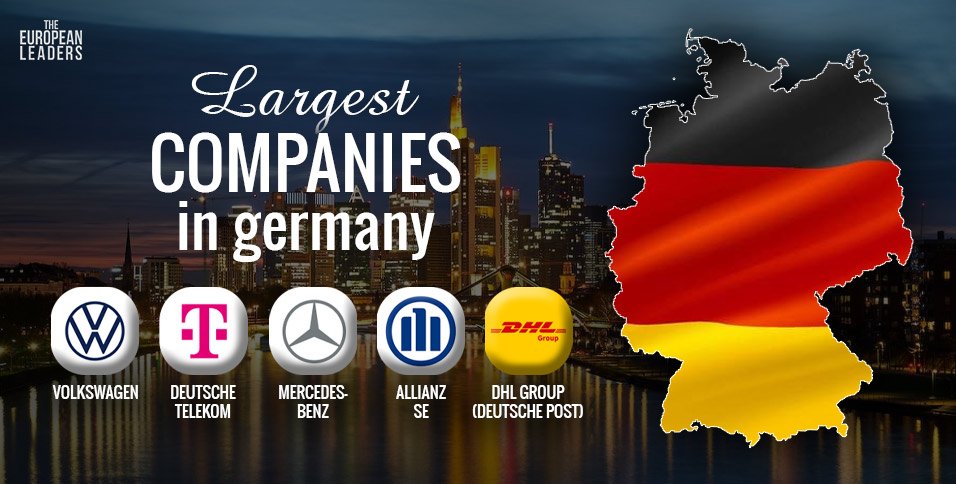The European Leaders
28 March 2025
Brussels – You might have seen the headlines, perhaps even chuckled a bit, but there’s a serious undertone to the latest developments in Brussels. We’re talking about Europe Preparing for War, and while the phrase itself sounds dramatic, the reality is that a significant shift is underway, one that’s starting to ripple through the continent’s economies and could well impact your wallet.
Now, you might be thinking, “War? In Europe? In 2025?” Well, the European Union isn’t exactly sounding the air raid sirens just yet, but they are taking some pretty significant steps that suggest a growing concern about the future security landscape.
The big news hitting the shelves, quite literally in some cases, is the push for every household to have a 72-hour survival kit ready. Think of it – food, water, the basics to see you through a crisis, be it a major natural disaster or, yes, something far more serious.
Commissioner for Preparedness, Hadja Lahbib, has been quite vocal about this, stressing it’s about resilience, not panic. She’s urging folks to get their ducks in a row, much like making sure your roof is sound before the heavens open.
The 72-Hour Survival Kit Push
This initiative is part of a broader emergency preparedness strategy. Key elements of this plan include:
- Stockpiling Supplies: Citizens are being encouraged to gather essential items like food, water, medicines, and other necessities to last for at least 72 hours.
- Strategic Safeguarding: The plan aims to establish minimum preparedness standards for critical services such as hospitals and schools across EU member states.
- Cultural Shift: The EU wants to foster a mindset where being prepared for emergencies becomes a normal part of life, similar to having fire extinguishers or smoke alarms.
Big Bucks for Defence
And it’s not just about stocking up on tins of beans. The EU is also looking at the bigger picture. There’s a real drive to bolster defence capabilities. We’re talking serious money here – a proposed €800 billion investment in defence over the next few years. That’s a hefty sum, and it signals a clear intention to move towards greater self-reliance on security matters.
Key Components of the Defence Plan:
- €150 Billion Defence Fund: This fund is earmarked for defence procurement and strengthening Europe’s own military industry, with the aim of reducing reliance on external suppliers.
- Joint Procurement Initiatives: Member states will be allowed to allocate up to 1.5% of their GDP to defence without facing budget deficit penalties. A loan scheme will also facilitate joint purchases of military equipment among EU nations and partners like Ukraine.
- Focus on Capability Gaps: The European Commission has identified urgent needs in areas such as air defence systems, drones, and cyber warfare capabilities.
How European Nations Are Responding
Several countries are already taking concrete steps to align with the EU’s preparedness push:
- France
- Survival Manual: Plans to distribute a “survival manual” to every household, offering guidance on preparing for various threats.
- Public Awareness Campaigns: Encouraging individuals and communities to be self-sufficient during crises.
- Sweden
- Updated Survival Guide: Revised its wartime survival guide, advising citizens to stockpile essentials for at least a week.
- Mandatory Conscription and Total Defence: Maintains a system of mandatory conscription and a “total defence” strategy.
- Finland
- Online Resource: Launched “Preparing for Incidents and Crises,” offering advice on preparing for various emergencies.
- Civic Responsibility: Emphasises civic duty and community involvement in crisis preparedness.
- Germany
- Emergency Preparedness Document: Released a 68-page document advising civilians to stockpile supplies for 10 days.
- Poland
- Three-Day Supply Recommendation: Urging citizens to maintain essential supplies for at least three days.
- Crisis Management Training: Implementing large-scale training initiatives for local officials.
The Business End of Things
Now, for those of us in the business world, this has some pretty significant implications. Firstly, that €150 billion defence fund isn’t just going to vanish into thin air. It’s going to fuel growth in the European defence sector.
We could see a surge in demand for everything from air defence systems to the latest in cyber warfare technology. Companies involved in these areas will likely be eyeing up some lucrative contracts.
Secondly, the push for national preparedness could well create new markets. Think about the companies that supply emergency rations, medical kits, and other essential items. If every household in the EU is encouraged to have a 72-hour survival kit, that’s a massive potential market.
We’ve already seen countries like France planning to distribute survival manuals and Sweden updating their wartime guides. Finland, ever pragmatic, has online resources for crisis preparation.
Even Germany is advising citizens to stockpile supplies for 10 days. Poland, too, is urging its citizens to have a three-day supply and is running crisis management training. This isn’t just about governments; it’s about a shift in societal thinking, where preparedness becomes the norm.
Political Landscape and Future Outlook
Of course, the elephant in the room is the political context. The EU isn’t shy about pointing to Russia’s ongoing aggression as a key driver behind these initiatives.
The fear is that a Russian victory in Ukraine could embolden further action, and Europe wants to be ready for any eventuality. This also ties into a broader discussion about Europe’s strategic autonomy and its relationship with the US on security matters.
You’re even hearing whispers, albeit still quiet ones, about the possibility of a European nuclear deterrent, with figures like Germany’s potential next leader, Friedrich Merz, hinting at such discussions.
So, what does this all mean for the average person interested in business? Well, it suggests a period of potential economic shifts. Increased defence spending could lead to inflationary pressures in certain sectors. The focus on self-reliance might lead to changes in trade relationships. And the general sense of uncertainty could impact consumer confidence and investment decisions.
Is Really Europe Preparing for War in 2025?
Ultimately, while the idea of Europe preparing for war might sound alarming, the steps being taken are aimed at ensuring stability and security in a turbulent world. For businesses, it presents both challenges and opportunities.
Understanding these shifts and being prepared for potential disruptions will be crucial in the coming years. It’s not about panic, as Commissioner Lahbib rightly says, but about being informed and ready for whatever the future might hold. And that, in the world of business, is always a prudent approach.








